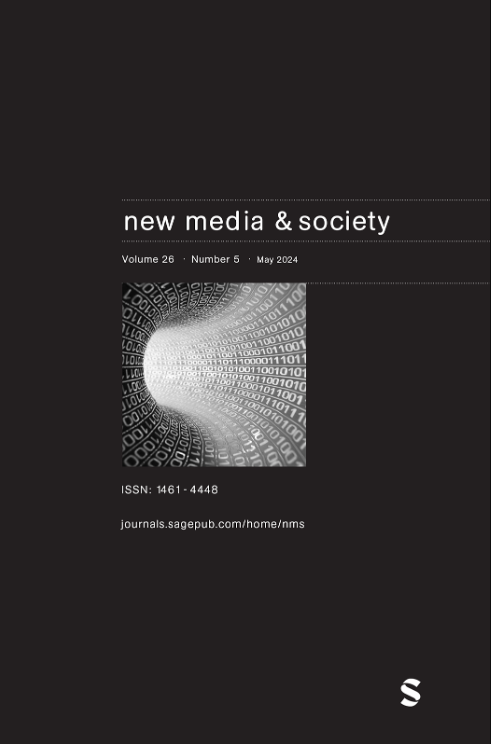Do parents ‘know best’ when it comes to their teenaged children’s experiences of sexual content online?
IF 4.3
1区 文学
Q1 COMMUNICATION
引用次数: 0
Abstract
In 2010, the EU Kids Online project, and aligned AU Kids Online study, interviewed one parent and one child (9–16) from 25,542 families across 26 countries. Information gathered included parents’ awareness of their child’s experiences of sexual content online. This dataset has since been updated by recent ethnographic work in Australia and Ireland, capturing parents’ approaches to managing their children’s (11–17) digital engagement with sexual content. Parents identified risks and benefits in their children’s encounters with adult content online. This article concludes that parents do not judge the efficacy of their digital parenting around preventing their child from seeing restricted 18+ content or, indeed, knowing whether their child has encountered sexual content online. Instead, they adopt a nuanced approach that reflects knowledge of their child and the child’s relative maturity, with a view to supporting their child’s progressive development towards full digital and sexual citizenship.当谈到他们十几岁的孩子在网上看到的性内容时,父母是否“最了解”?
2010年,欧盟儿童在线项目和非盟儿童在线研究联合采访了来自26个国家25,542个家庭的一位家长和一个孩子(9-16岁)。收集的信息包括父母对孩子在网上接触性内容的意识。最近在澳大利亚和爱尔兰进行的人种学工作更新了这个数据集,收集了父母管理孩子(11-17岁)与性内容的数字接触的方法。家长们确定了孩子在网上接触成人内容的风险和益处。这篇文章的结论是,父母们不会以防止孩子看到限制的18+内容或知道孩子是否在网上遇到性内容来判断他们的数字教育的效果。相反,他们采取了一种细致入微的方法,反映了他们对孩子的了解和孩子的相对成熟程度,以支持他们的孩子向完全数字化和性公民的逐步发展。
本文章由计算机程序翻译,如有差异,请以英文原文为准。
求助全文
约1分钟内获得全文
求助全文
来源期刊

New Media & Society
COMMUNICATION-
CiteScore
12.70
自引率
8.00%
发文量
274
期刊介绍:
New Media & Society engages in critical discussions of the key issues arising from the scale and speed of new media development, drawing on a wide range of disciplinary perspectives and on both theoretical and empirical research. The journal includes contributions on: -the individual and the social, the cultural and the political dimensions of new media -the global and local dimensions of the relationship between media and social change -contemporary as well as historical developments -the implications and impacts of, as well as the determinants and obstacles to, media change the relationship between theory, policy and practice.
 求助内容:
求助内容: 应助结果提醒方式:
应助结果提醒方式:


